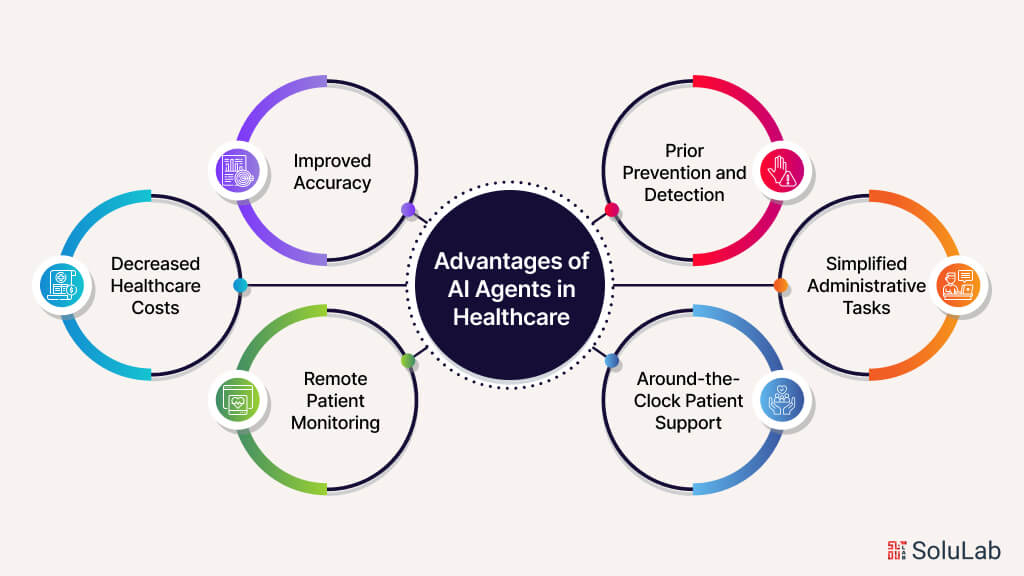How Insurance Policy Functions for Seniors: Secret Insights Into Medicare and Protection Options
Recognizing insurance policy for senior citizens, particularly Medicare, is essential for efficient medical care monitoring. Medicare provides vital protection, however its intricacies can be overwhelming. Seniors need to browse different components, such as Components A, B, and D, along with choices like Medicare Advantage and Medigap plans. Each option impacts their financial obligations and accessibility to services. Unboxing these aspects discloses substantial insights that can influence their health care choices. What are the essential elements senior citizens should think about?
Recognizing Medicare: An Overview

Medicare Parts A and B: What They Cover
Medicare Components A and B supply essential protection for seniors, dealing with both medical facility and medical solutions. Component A concentrates on health center insurance coverage, covering inpatient stays and certain outpatient services. Part B provides coverage for an array of clinical solutions, consisting of doctor visits and preventive care.
Hospital Insurance Coverage Insurance Coverage
How do elders browse the complexities of healthcare facility insurance policy coverage? Medicare Part A supplies important healthcare facility insurance, covering inpatient remains, skilled nursing facility care, hospice services, and some home health and wellness treatment. This insurance coverage is essential for senior citizens, as it aids handle the prices linked with hospitalizations and recovery.Medicare Part B, on the other hand, enhances Component A by covering outpatient solutions, consisting of physician sees, precautionary treatment, and diagnostic tests. With each other, these two components create a comprehensive safety web for seniors, guaranteeing they have access to essential clinical treatment. Recognizing the differences in between Parts A and B allows seniors to make educated decisions regarding their health care demands and monetary obligations connected with health center solutions.
Medical Provider Insurance Coverage
While traversing the intricacies of clinical solutions coverage, senior citizens profit from comprehending the particular offerings of Medicare Parts A and B. Medicare Part A mostly covers inpatient health center stays, knowledgeable nursing center care, hospice treatment, and some home healthcare solutions. On the other hand, Medicare Part B focuses on outpatient solutions, consisting of physician sees, preventative treatment, diagnostic examinations, and resilient medical tools. Furthermore, Component B covers specific mental health and wellness solutions and outpatient rehabilitation. Together, these parts give an extensive framework for taking care of health care needs. Senior citizens should familiarize themselves with the subtleties of these coverage choices to guarantee they optimize their advantages and reduce out-of-pocket costs, eventually enhancing their accessibility to vital medical solutions.
Medicare Advantage Strategies: An Alternate Approach
An expanding number of seniors are discovering Medicare Advantage Plans as a practical option to conventional Medicare. These plans, additionally understood as Medicare Component C, are provided by personal insurance business and encompass all advantages of Medicare Parts A and B, frequently consisting of extra services such as vision, oral, and health care. Lots of seniors value the streamlined method, as these strategies usually supply a solitary plan that covers numerous medical care needs.Medicare Benefit Strategies can provide a cost-effective option, with some strategies also featuring reduced or no monthly costs. It is crucial for elders to review the network of doctors and medical facilities associated with each strategy, as well as any type of added out-of-pocket expenses that might develop. Inevitably, picking a Medicare Advantage Plan calls for mindful consideration of specific wellness demands and economic conditions, making certain seniors select the option that ideal fits their way of life and medical care needs.
Prescription Medication Insurance Coverage: Medicare Component D
Medicare Part D offers crucial prescription medication coverage for seniors, aiding to take care of the costs of needed medicines. Comprehending the enrollment period is important for beneficiaries to maximize their advantages and stay clear of penalties. In addition, expense factors to consider play a significant duty in picking the right strategy to fit specific health and wellness demands and monetary scenarios.
Protection Essential Explained
Prescription medication protection is a necessary component of medical care for seniors, ensuring access to necessary medications. Medicare Part D provides a selection of plans made to assist cover prescription drug prices. These strategies are provided by exclusive insurance provider authorized by Medicare and can differ commonly with respect to premiums, deductibles, and covered medicines. Recipients normally pay a regular monthly costs, along with copayments or coinsurance for each prescription. It's important for elders to assess their choices yearly, as expenses and formularies might change. Some individuals might also get approved for Additional Assistance, a program that helps with out-of-pocket prices. Inevitably, understanding these fundamentals allows seniors to make informed decisions about their prescription medicine coverage.
Enrollment Duration Details
Recognizing the numerous enrollment durations for Medicare Component D is important for seniors looking for to protect their prescription medication insurance coverage. The First Enrollment Period (IEP) lasts seven months, starting three months before an individual turns 65 and ending three months after. During this time, senior citizens can register in a Part D strategy without see here now fine. The Annual Registration Duration (AEP) runs from October 15 to December 7 every year, permitting beneficiaries to make modifications to their existing plans or enroll in a brand-new one. Furthermore, seniors may receive a Special Registration Duration (SEP) as a pop over to these guys result of details situations, such as relocating or shedding other coverage. Recognition of these durations is vital for making certain adequate prescription medication insurance coverage.
Expense Considerations Summary
While maneuvering through the complexities of healthcare prices, elders should take into consideration the financial facets of Medicare Component D, which supplies vital prescription medicine protection. This program entails different expenses, consisting of monthly costs, annual deductibles, and copayments for medications. Premiums can differ significantly based upon the selected strategy and income level. In addition, recipients might come across a protection space, frequently referred to as the "donut opening," where out-of-pocket expenses increase up until reaching a particular costs limit. Understanding these cost frameworks is important for senior citizens to effectively handle their health care spending plans. Moreover, it is advisable for elders to evaluate their prescription requires each year, as drugs and plan alternatives might change, influencing total expenses and insurance coverage competence.
Medigap Policies: Supplementing Your Medicare Coverage

Medicaid: Additional Assistance for Low-Income Seniors
For seniors dealing with financial difficulties, Medicaid serves as a vital safeguard, providing crucial healthcare protection and support. This program, carried out jointly by federal and state federal governments, especially targets low-income individuals, consisting of the elderly. Medicaid covers a wide variety of services, such as health center stays, physician sees, long-lasting treatment, and home health services, which are fundamental for maintaining wellness and health. Qualification for Medicaid varies by state, often based on income, properties, and certain clinical demands. Several senior citizens might receive both Medicare and Medicaid, recognized as dual qualification, which can help cover prices that Medicare does not, such as deductibles and copayments. In addition, Medicaid may supply aid with prescription medicine costs through programs created for low-income recipients. Overall, Medicaid plays a substantial role in ensuring that low-income senior citizens have accessibility to required medical care solutions, advertising better health and wellness outcomes and lifestyle.
Browsing the Registration Refine: Secret Timelines and Tips
Exactly how can seniors successfully browse the facility registration procedure for medical care insurance? Comprehending crucial timelines is necessary. The initial registration period for Medicare begins three months prior to the private turns 65, extends through the month of their birthday, and proceeds for 3 months after. Throughout this period, seniors can enroll in Medicare Component A and Part B without penalties.Additionally, the annual open registration period for Medicare Advantage and Part D runs from October 15 to December 7 yearly, enabling modifications in coverage. Senior citizens are encouraged to analyze their current wellness needs and review strategy alternatives during this time.To help with a smooth enrollment experience, utilizing resources such as the Medicare site or calling state medical insurance support programs can supply useful support. published here Monitoring due dates and necessary records will certainly additionally guarantee that seniors protect the most ideal insurance coverage for their medical care requires.
Frequently Asked Questions

Can I Maintain My Existing Physician With Medicare Coverage?
The question of maintaining a current physician under Medicare insurance coverage frequently depends upon the certain plan picked. Many Medicare Advantage plans might require utilizing a network of service providers, while Initial Medicare typically enables wider accessibility to doctors.
What Happens if I Miss the Enrollment Period?
If a specific misses out on the registration period, they might face postponed insurance coverage, higher costs, or prospective fines. Senior Insurance Agent. This situation can bring about gaps in healthcare gain access to, motivating the need for mindful planning and recognition of target dates
Are Dental and Vision Solutions Covered by Medicare?
Oral and vision services are generally not covered by Medicare. Nonetheless, some Medicare Benefit strategies might supply these benefits. Elders ought to explore their choices to identify if additional insurance coverage is offered for these necessary services.
How Do I Submit a Complaint Regarding My Medicare Plan?
To file a grievance concerning a Medicare plan, one should speak to Medicare directly at 1-800-MEDICARE or visit their site. Coverage concerns helps improve services and assurances that worries are resolved immediately.
Can I Modification My Medicare Plan After Registration?
Transforming a Medicare strategy after enrollment is feasible during marked periods, such as the Yearly Registration Period or Unique Registration Periods (Senior Insurance Agent). Individuals ought to assess their options meticulously to ensure they choose the finest protection for their demands
Verdict
In summary, understanding the ins and outs of Medicare and its various components is important for seniors seeking to optimize their health care insurance coverage. By exploring Medicare Parts A and B, Benefit Plans, Part D for prescriptions, and Medigap plans, seniors can make enlightened decisions that lessen out-of-pocket costs. Furthermore, awareness of Medicaid alternatives provides more support for low-income people. Leading the enrollment process with vital timelines warranties that senior citizens can access the crucial solutions they require for their well-being. The program is split right into Initial Medicare and Medicare Benefit, each offering distinct advantages and insurance coverage choices. While passing through the intricacies of clinical services coverage, senior citizens benefit from comprehending the certain offerings of Medicare Components A and B. Medicare Component A mostly covers inpatient health center keeps, knowledgeable nursing center care, hospice care, and some home health and wellness care solutions. A growing number of seniors are exploring Medicare Advantage Program as a feasible alternative to traditional Medicare. Numerous seniors may qualify for both Medicare and Medicaid, known as twin eligibility, which can help cover expenses that Medicare does not, such as copayments and deductibles. Throughout this period, seniors can register in Medicare Part A and Part B without penalties.Additionally, the yearly open enrollment period for Medicare Benefit and Part D runs from October 15 to December 7 each year, allowing modifications in protection.